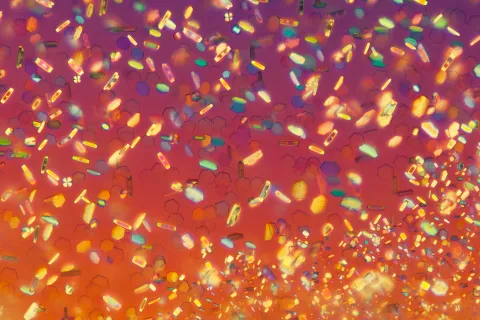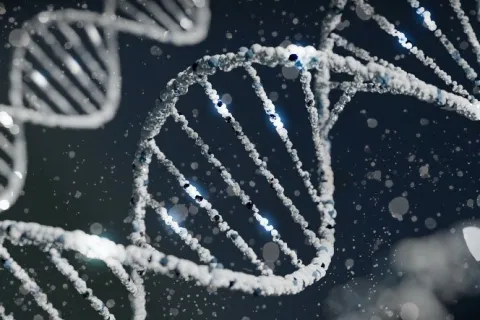New study looks at how autism-linked genetics changes are passed to children
August 6, 2021A new finding, published in June in the journal Translational Psychiatry, suggests that a woman’s genetics could be a factor affecting a child’s autism symptoms more than previously thought.
To understand the genetics behind autism, researchers looked at the mother’s genes in mice bred with autism-linked genes for an explanation about how certain autism-linked genetics changes are passed on, and why some people with those variations develop autism and others do not.
Researchers in this study measured autistic behavior in mice with a genetic mutation in the PTEN gene, which is strongly linked to autism, born from mother mice with a PTEN mutation. They compared them to other mice and their offspring without these genetic changes.
In humans, mutations in the PTEN gene are also strongly linked to other serious health conditions, including an increased risk for cancer. Studying these gene changes also help ensure autistic people with PTEN mutations get appropriate health care and screenings related to their specific genetics.
“Understanding these genetic links can help us understand not only how genetics are linked to autism, but how genetics between generations and the environment interact,” said Thomas W. Frazier, Ph.D., chief science officer at Autism Speaks and an author of the study. “Ultimately, this understanding can help guide more personalized care for people with autism and their families based on their genetics.”
Researchers found that the mice born to mothers with the PTEN mutation showed more autistic traits than those born to mothers with typical genetics, regardless of whether the offspring had the PTEN mutation themselves.
Mice who had a PTEN mutation and whose mothers also had that mutation showed the most autistic traits.
When comparing the offspring mice with a PTEN mutation, having a mother with the PTEN mutation increased the offspring’s autistic traits. Having a mother without a PTEN mutation reduced the offspring’s autistic symptoms. These findings suggest that the mother’s genetics plays a large part in their pups’ autistic traits.
Given the serious health conditions linked to this area of the genome, other important findings showed that mice born to mothers with the PTEN mutation also showed more changes in brain structure in areas that affect their functional abilities, larger brains overall, and greater risk of dying shortly after birth.
This study also looked at how the PTEN mutation affected the developing offspring mice in the womb. Past research has linked inflammation in mothers to a higher risk for autism in her children. In pregnant mice with inflammation, the researchers found low levels of an anti-inflammatory protein called a cytokine that can affect their inflammatory response and potentially affect the development of their offspring.
While the inflammatory regulation problem coincided with which mothers had the PTEN mutation, there is not enough evidence to confidently say the mutated PTEN gene is driving the changes in the mothers’ immune systems, although PTEN is known to modulate the immune system in broad ways, including neuroinflammation.
Ultimately, this study shows early evidence that a mother’s genome can affect how autism develops in their children. In the future, researchers want to examine how cytokine levels in pregnant mothers are linked to inflammation and autism in their children.







